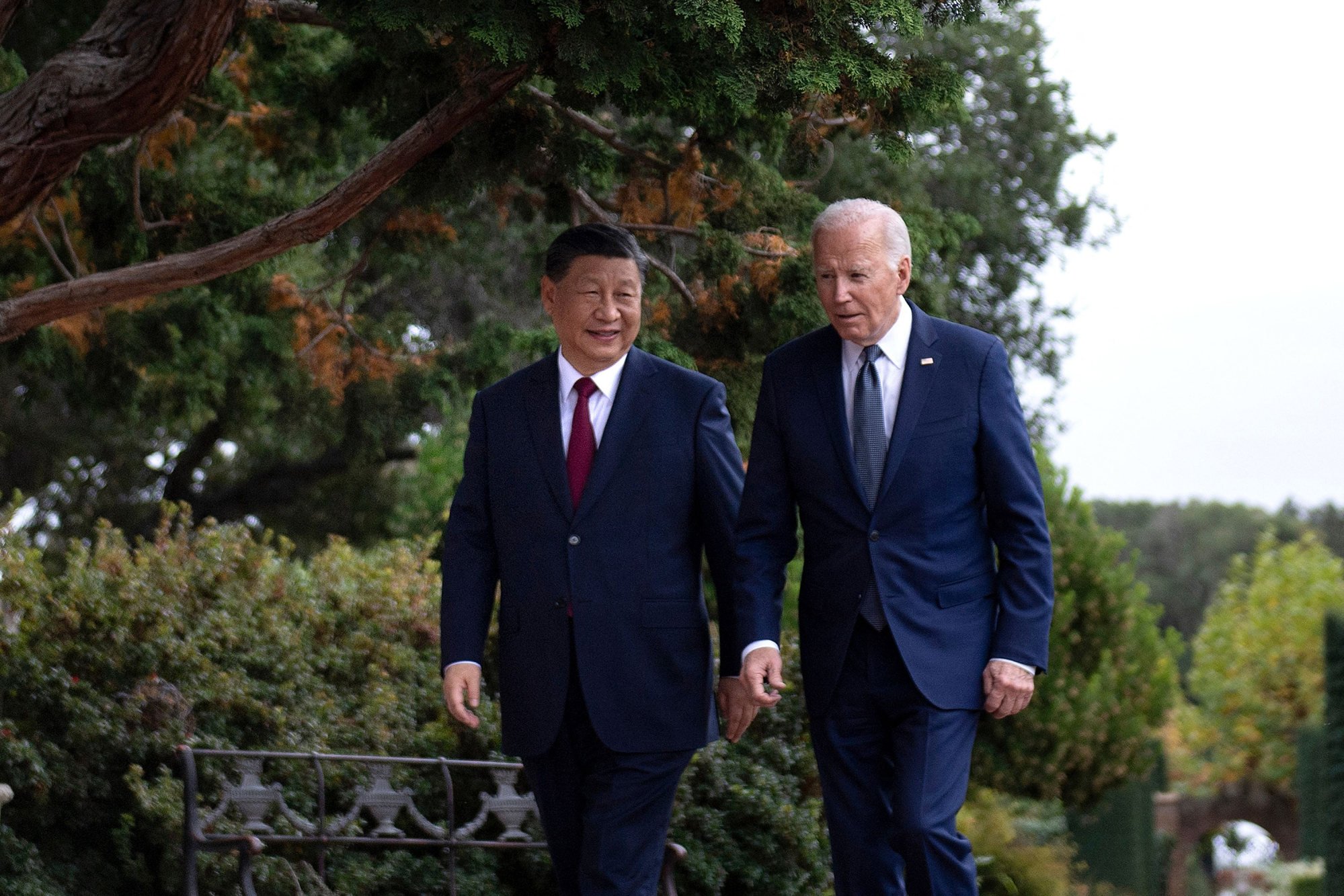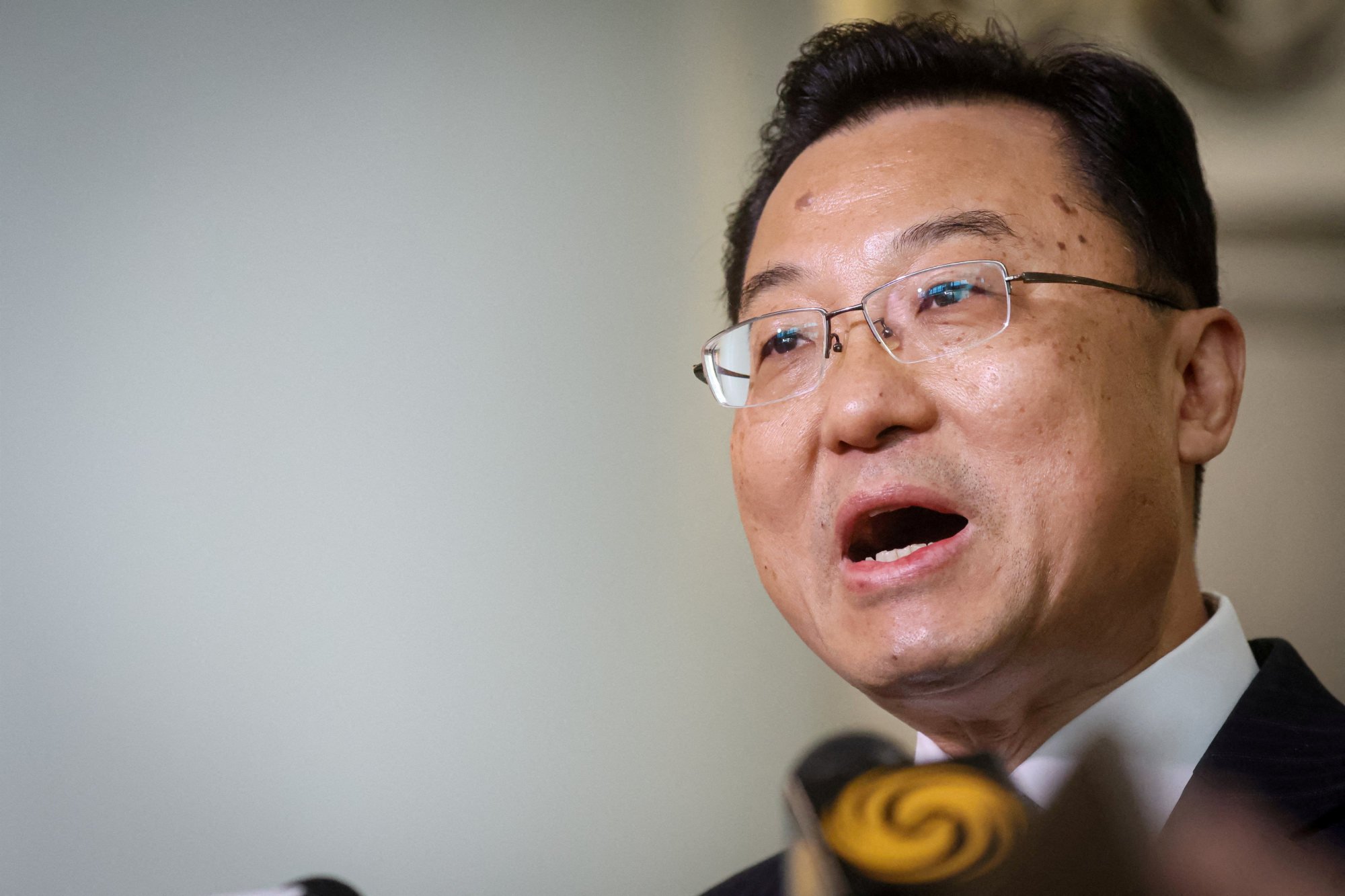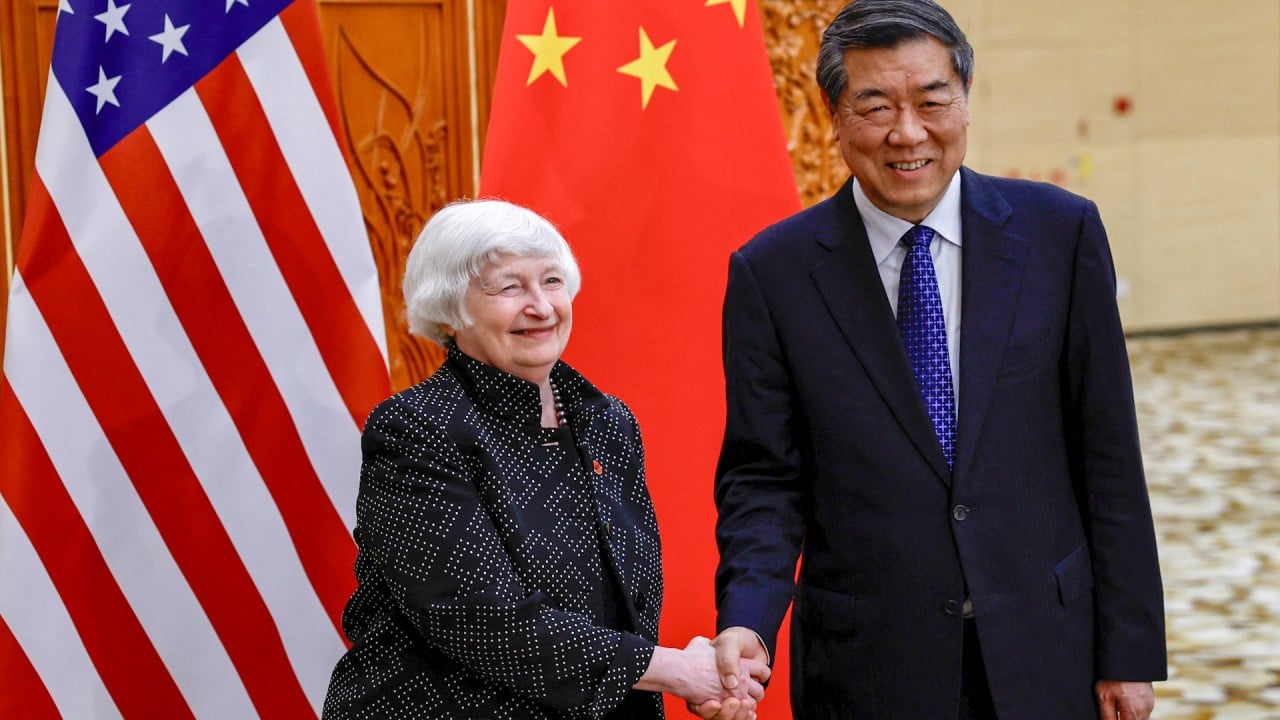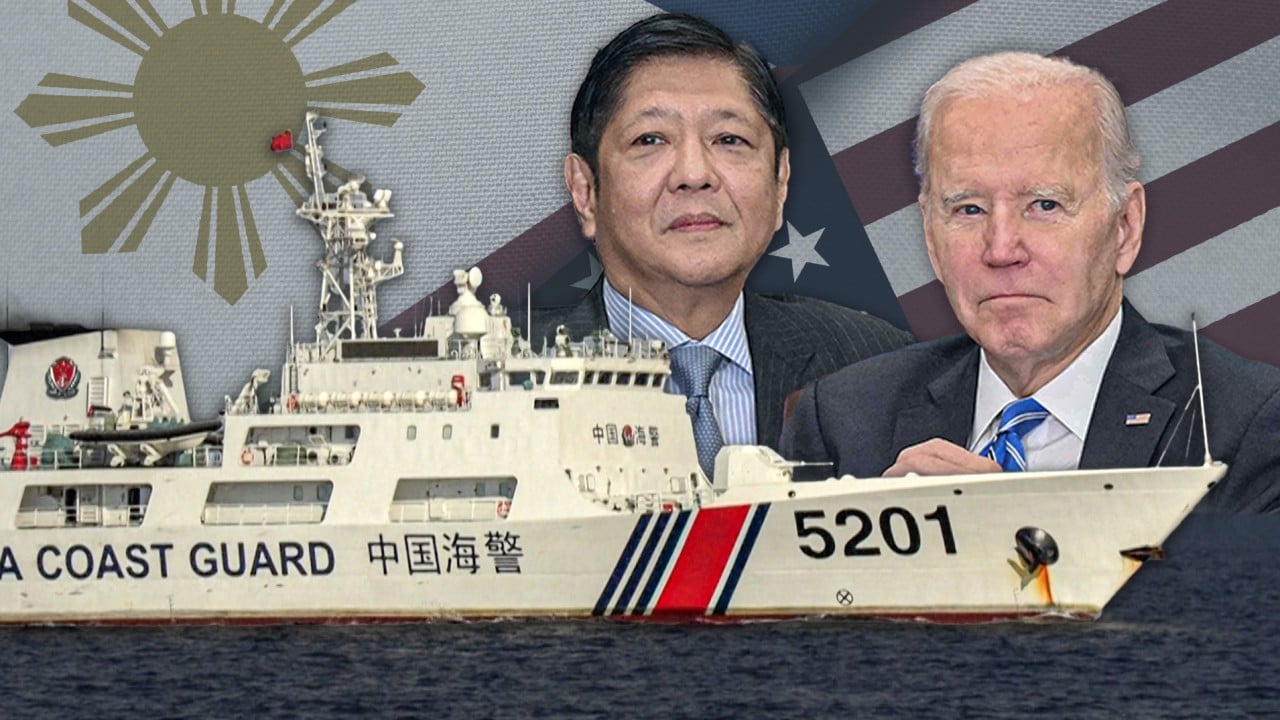
US is ‘stubbornly’ trying to contain China, Beijing says ahead of Blinken visit
- Washington has ‘seriously harmed’ Chinese interests with moves to suppress the country’s economy and trade, foreign ministry official says
- He also says Beijing opposes American interference in the South China Sea and the US ‘sowing discord’ between Beijing and its neighbours
In a briefing on Tuesday, a foreign ministry official said the US had taken measures to suppress China’s economy and trade, which had “seriously harmed” Chinese interests, according to a report on state broadcaster CCTV.
“This is not removing risks but creating risks,” said the official from the foreign ministry’s North American and Oceanian affairs department, who was not named.
“The United States is stubbornly advancing its strategy to contain China and continues to adopt wrong words and deeds that interfere in China’s internal affairs, smear China’s image, and harm China’s interests.”
Blinken’s visit – from Wednesday to Friday – comes as the US has aired growing concerns over China’s industrial overcapacity.
Washington has since called for a tripling of import tariffs on Chinese steel and aluminium, and launched an investigation into China’s alleged subsidies in the shipbuilding, logistics and maritime industries.
The foreign ministry official dismissed Washington’s allegations of Chinese overcapacity as a “false narrative”, saying it was “outright economic coercion and bullying”.
“Behind it is the evil intention of curbing and suppressing China’s industrial development, aiming to seek a more favourable competitive position and market advantage for the country,” the official said.
China acquired US-restricted Nvidia AI chips built in servers, tenders show
“We firmly oppose the US politicising economic, trade and science and technology issues, and warn the US that suppressing China’s science and technology is … depriving the Chinese people of their legitimate rights to development. China will respond resolutely.”
The official was outlining areas Beijing will focus on during Blinken’s visit – his second in less than a year.
They included seeking more dialogue with the US, deepening cooperation, and working together on global issues as major powers including the conflicts in Ukraine and the Middle East.

“China’s door to dialogue and communication is always open,” he said. “At the same time, the United States must realise that it cannot communicate for the sake of communication, cannot say one thing and do another, let alone have any illusions about dealing with China from the so-called position of strength.”
He said Washington was “obsessed” with forming an anti-China bloc and Beijing would make clear its position on issues including Taiwan, trade, science and technology, and the South China Sea during this week’s talks.
He said China opposed American interference in the South China Sea and the US “sowing discord” between Beijing and its Southeast Asian neighbours.
Blinken highlights China’s Uygurs as ‘genocide’ victims at US report launch
The two long-time allies this week began their largest combat exercise in years, involving more than 16,000 military personnel.
“The United States is not a party to the South China Sea issue and should not intervene, let alone disrupt the situation,” the official said.
For the drills, the US deployed a medium-range missile launcher to the Philippines, a move the official described as exacerbating tensions and increasing the risk of miscalculation in the region.
China’s ambassador to the US Xie Feng made similar remarks last week.
“It would be self-deluding to suppress and encircle China in the name of competition on one hand, and try to manage competition and avoid direct conflict on the other,” he said in a conversation with Harvard professor Graham Allison.
Xie also claimed the two powers had agreed to hold talks on “national security boundaries” after Xi and Biden met in San Francisco, but the US was reluctant to have a detailed discussion.
Those consultations have not previously been mentioned and were not in statements from either side following the leaders’ meeting in November.
US accused of ‘warmongering’ against China as drills with Philippines begin
Observers say the latest remarks from Beijing reflect growing frustration over Washington’s recent actions.
Lu Xiang, a research fellow at the Chinese Academy of Social Sciences, said the atmosphere this week was likely to be “tense”.
He said US actions – including a trilateral summit with the Philippines and Japan this month – were viewed as targeting China and had stoked tensions in the region.
“Tensions are dangerously high. [China and the US] are very close to triggering a conflict,” he said.

Lu also said the new round of potential tariffs aimed at Chinese exports was a “very unfriendly” move.
Jeremy Chan, a senior analyst at political risk consultancy Eurasia Group, said it appeared “patience is wearing thin” with the state of US-China ties.
He said Xie was right to point out that the two countries had “only done the bare minimum” to stop relations from deteriorating further, and that would leave them “not far away from a more precipitous downturn in relations whenever the next crisis moment appears”.
US accused of ‘warmongering’ against China as drills with Philippines begin
Chan expected Beijing to raise the issue of US trade curbs, particularly in the tech sector, in this week’s talks. He said Blinken was likely to raise Chinese firms’ support for Russia’s defence industrial base and the crisis in the Middle East.
He did not expect much from the visit, but noted that “the two sides are communicating again at almost every level”.
“These ‘guard rails’ won’t by themselves prevent a rupture in the relationship, but they will serve as shock absorbers to soften the blow when the next crisis moment arrives.”



